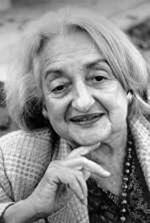Activism: Women's Rights

Deborah Brin
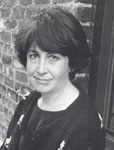
Susan Brownmiller
Susan Brownmiller is a radical feminist writer and journalist. She was a leader in the Women’s Liberation Movement of the 1960s to 1980s (second-wave feminism). Brownmiller is bes-known for Against Our Will: Men, Women, and Rape (1975), the first comprehensive study of sexual violence.

Elana Brownstein
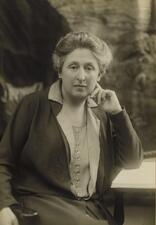
Cécile Brunschvicg
Cécile Brunschvicg was one of the grandes dames of French feminism during the first half of the twentieth century. Although her chief demand was women’s suffrage, she also focused on a range of practical reforms, including greater parity in women’s salaries, expanded educational opportunities for women, and the drive to reform the French civil code, which treated married women as if they were minors.
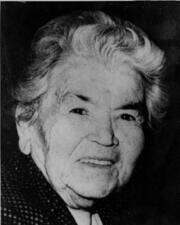
Hayuta Busel
As a widowed immigrant and young mother, Hayuta Busel fought to expand options for women in Palestine throughout her work on kibbutzim and in the women’s labor movement. Busel believed profoundly in the liberation of Jews, especially women, in the Hebrew language, and in the creation of a new model of family which would facilitate women’s liberation.

Anya Cherneff

Rebecca Chernin
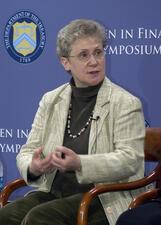
Abby Joseph Cohen
A leading voice in the United States investment banking and finance industry, Abby Joseph Cohen worked in the Goldman Sachs investment research division for over three decades. She rose to prominence in the 1990s with her accurate predictions of a prolonged economic expanding and durable bull market and has remained one of the top names in the investment industry.
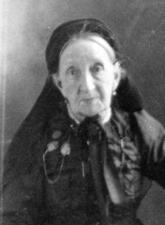
Elizabeth D. A. Cohen
Called a midwife and a “doctoress,” Elizabeth D.A. Cohen fought for the respect of her colleagues. She was the first woman doctor recognized by the state of Louisiana and battled to save patients from two epidemics of yellow fever.
Felice Cohn
Felice Cohn was one of Nevada’s first women lawyers in the early twentieth century, an author of suffragist legislation in Nevada, and one of the first women allowed to argue before the United States Supreme Court.

Susan Davis

Ida Dehmel
Living a privileged existence in the wealthiest circles of German cultural society, Ida Dehmel became involved in circles of patronage of modern art that raised awareness for feminist issues, including women’s suffrage and equality for women’s artists’ associations. In 1916 she co-founded the Women’s Society for the Advancement of German Art.

Barbara Dobkin
Barbara Berman Dobkin is the pre-eminent Jewish feminist philanthropist of the end of the twentieth and beginning of the twenty-first century. Her vision, dedication, and philanthropic generosity have transformed the landscape of Jewish women’s organizations and funding in both North America and Israel.
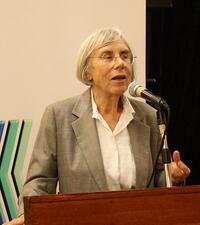
Dalia Dorner
Israeli Supreme Court Justice Dalia Dorner was known for citing non-legal sources in her decisions to illustrate the just society she aspired to live in. With landmark cases impacting gender equality, the right to education for all, and the right to live in dignity, Justice Dorner’s legal and social legacy is deeply rooted in human rights.
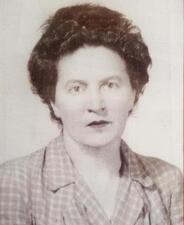
Berta Blejman de Drucaroff
Berta Blejman de Drucaroff was a prominent activist of the Yiddisher Kultur Farband (YKUF/ICUF) and a communist militant in anti-fascist organizations. She was president of the YKUF Women's Organization (OFI) and the main promoter of the reading circle network (leien kraizn) in Argentina.
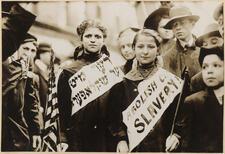
Eastern European Immigrants in the United States
Forty-four percent of the approximately two million Jewish immigrants who arrived in the United States between 1886 and 1914 were women. Although these women were more politically active and autonomous than other immigrant women, dire economic circumstances constricted their lives. The hopes these immigrant women harbored for themselves were often transferred to the younger generation.

Ronit Elkabetz
Ronit Elkabetz (1963-2016) was one of Israeli cinema's leading actors. Coming from the northern periphery, she played in some of the major Israeli films of the last decades. She is particularly remembered for the trilogy she directed with her brother Shlomi Elkabetz: To Take a Wife (2004), The Seven Days (2009), and Gett: The Trial of Viviane Amsalem (2013), all addressing the issue of the oppression of Mizrahi women in the name of the Jewish religion.

Gloria Feldt
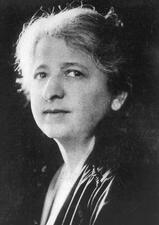
Mary Fels
Mary Fels used her wealth and her talents to further the Zionist cause, arguing passionately for a Jewish state and helping create both settlements and industry in Israel. Both Fels and her husband, a successful soap manufacturer, felt their wealth gave them a responsibility to reform capitalism and use their money for philanthropy.

Feminism in Contemporary Israel
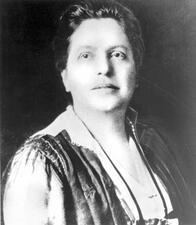
Feminism in the United States
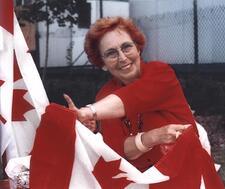
Sheila Finestone
Senator Sheila Finestone was an important figure in Canadian parliamentary history, founding the Coordinating Committee of Women Parliamentarians for the Inter-Parliamentary Union. She took up issues including human rights and served as president of the Quebec Federation of Women. A cornerstone of Canadian Jewish history, Finestone dedicated her life to advocacy and activism.

Rose Finkelstein
Henrietta Franklin
Henrietta Franklin (née Montagu) was a leading British educationist and suffragist and a supporter the Liberal Judaism movement, pioneered by her sister Lily Montagu.
